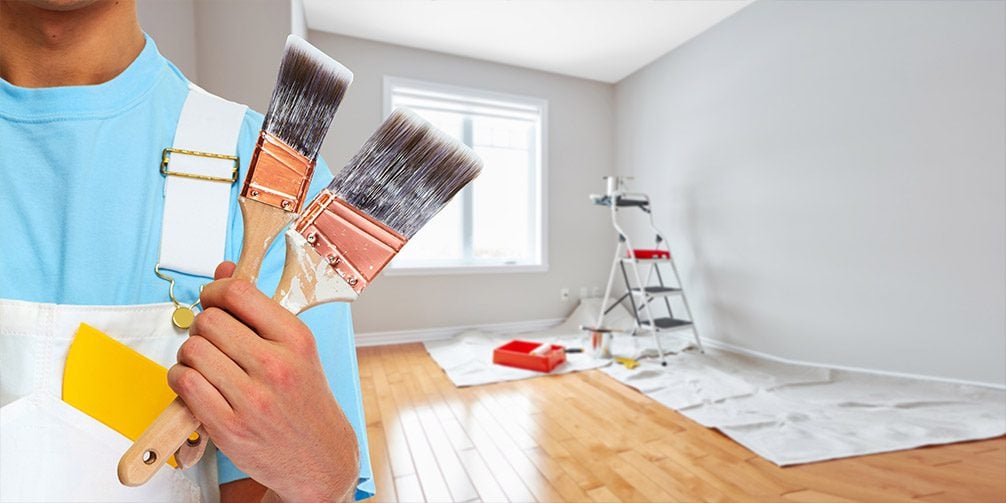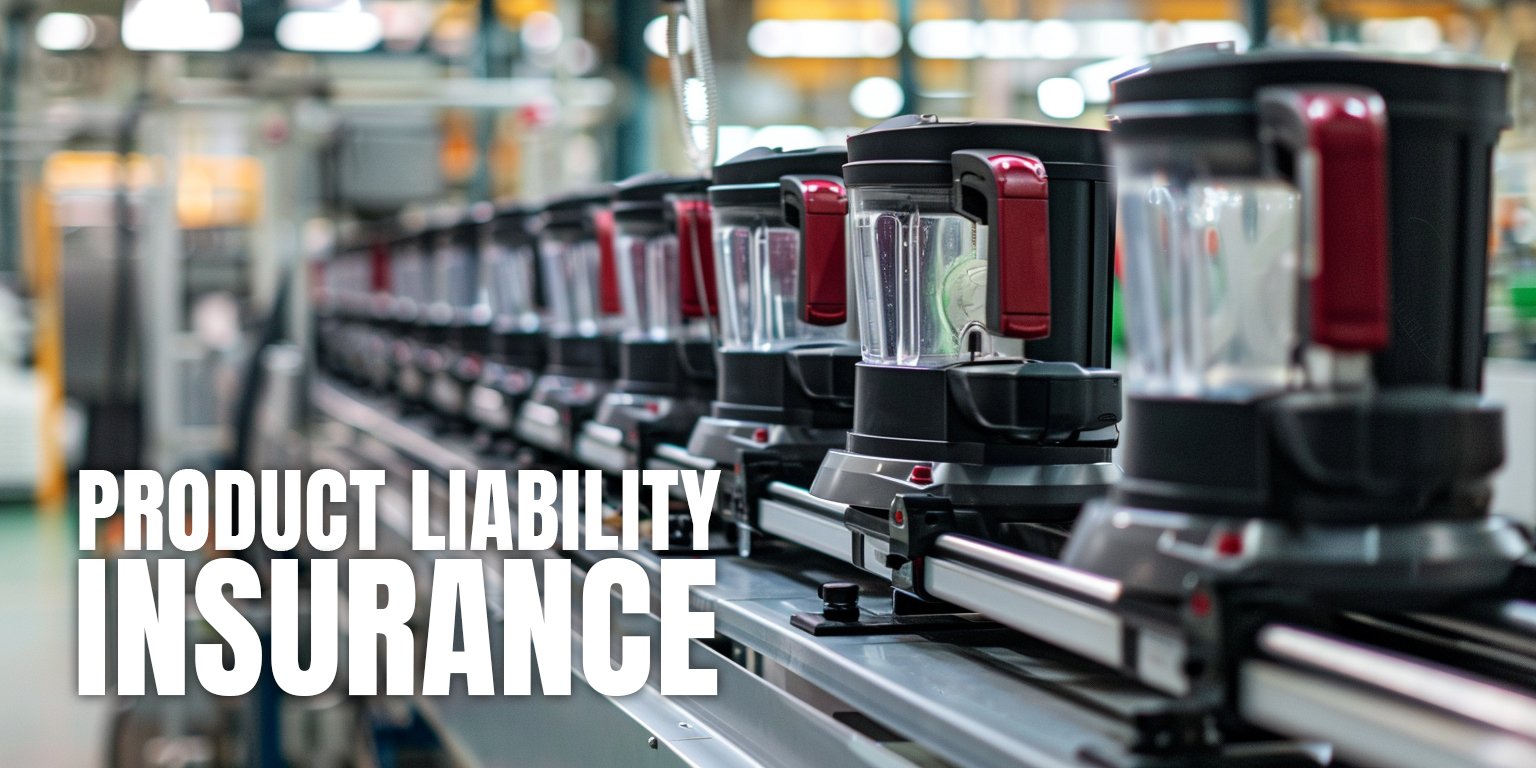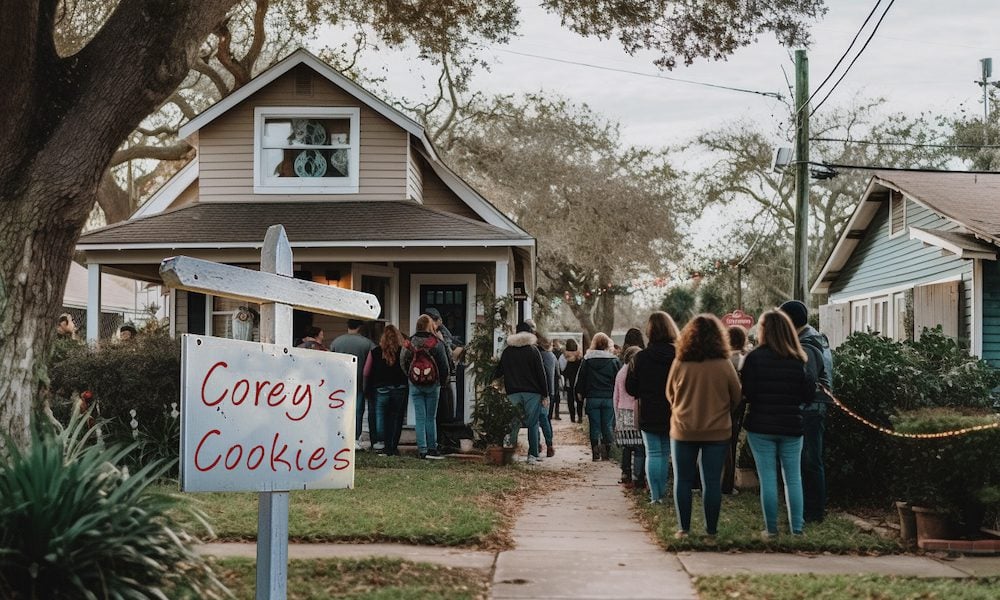Restaurant Insurance: Why Liquor Liability is Essential in Safeguarding Your Business
August 5th, 2023
7 min read
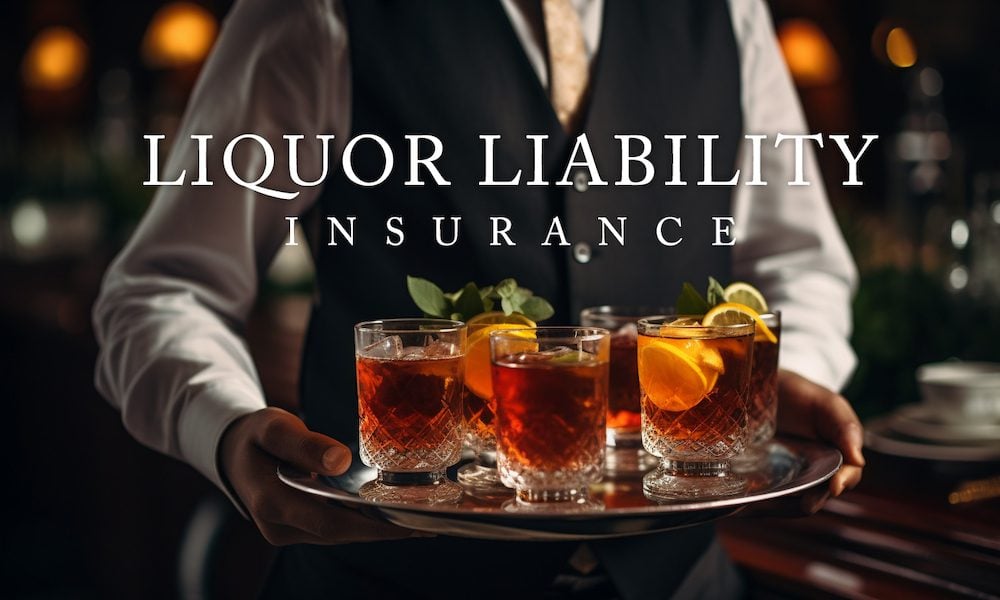
Some CNY businesses face more risks than others and require specialized insurance solutions. Restaurants and food services are among these businesses, especially if they sell or serve alcohol.
If you own or plan to own a restaurant that sells or serves alcohol, you need to know about liquor liability insurance. This type of insurance can protect your business from costly lawsuits and damages stemming from intoxicated customers who cause harm to themselves or others after drinking at your establishment.
Whether you’re pre-planning for your first restaurant, adding alcohol sales to your existing menu, or already selling alcohol but want to learn more about your risks and responsibilities, this article will help you understand:
- What liquor liability insurance is, and how it protects your business from alcohol-related lawsuits and damages
- Why you need this coverage if you sell or serve alcohol, and what the legal requirements are in New York State
- How much liquor liability insurance costs and what factors affect your premium
- The eligibility criteria and best practices to qualify for liquor liability insurance and reduce your risk exposure
We’re a CNY-based insurance agency that specializes in policies like this, and we’ve invested our time and expertise to understand the unique needs of these establishments and the best ways to protect them from liquor-related claims.
We can help you find the most affordable and comprehensive liquor liability coverage for your business.
Let’s dive in.
Liquor Liability Insurance vs. Liquor Bond
Liquor liability insurance and a liquor bond are two different types of protection for businesses that deal with alcohol, but they serve different purposes. Let’s examine both more closely.
Liquor Liability Insurance
Liquor liability insurance covers the legal and medical costs that may arise from a lawsuit or claim involving bodily injury or property damage caused by an intoxicated customer who was served or sold alcohol by your business.
For example, if a customer gets into a fight, drives drunk, or falls down the stairs after drinking at your restaurant, you could be liable for their actions and damages. Liquor liability insurance can help you pay for the legal fees, settlements, judgments, repairs, and medical bills that result from such incidents.
While obtaining liquor liability insurance is not mandatory in New York State, you’re taking a significant risk by opening a restaurant that serves alcohol and not picking up this coverage, which is as important as general liability.
New York is one of the states that have dram shop laws, which hold alcohol vendors liable for the harm that intoxicated customers cause to themselves or others. Without liquor liability insurance, you could face huge legal and medical costs that could ruin your business.
Liquor liability insurance can cover claims pertaining to:
- Overserving: You can overserve alcohol to a customer. That person can then create a ripple effect by getting into their car and injuring a third party, who in turn may sue you for damages your overserved customer caused.
- Underage Drinking: Minors who look older than their years or who supply fake identification can lead to negligence on your part if alcohol is served. If that teen gets into their car, drives off, and injures themself or others, you could be held liable.
- Assault and Battery: If an intoxicated customer has a dispute with another guest at your restaurant and assaults them, this can lead to major implications for you, your staff, and the restaurant itself. You can be sued for failing to provide a safe environment for your customers.
- Alcohol Poisoning: While connected to overserving, alcohol poisoning carries its own risk, including death. A person can suffer alcohol poisoning at your restaurant when they drink too much alcohol too fast, which then affects their brain and vital functions.
- Property Damage: A drunk patron might stumble out of your restaurant, climb into their vehicle, and collide with a neighboring property. The owner of that property can sue you for damages since your patron’s intoxication was caused by the alcohol you served.
- Slip and Fall Accidents: While general liability can cover slip and fall accidents, it only does so when liquor is not involved. If a patron who drank alcohol at your restaurant happens to slip and fall as a result of the drinks coursing through them and they sustain injuries, they can sue you.
Liquor Bond
A liquor bond, also known as an alcohol tax bond or liquor license bond, is a type of surety bond that guarantees the payment of taxes and fees your business owes to the state, county, or local government for selling or serving alcohol.
For example, if you fail to pay the sales tax, excise tax, or license fee for your alcohol business, the government can make a claim against your bond and get reimbursed by the bonding company. A liquor bond is required by law as a condition for obtaining or renewing your liquor license in New York State, per the New York State Liquor Authority.
Liquor liability insurance and a liquor bond are not interchangeable and do not cover the same risks. The bond is not insurance. It won’t aid you if you’re sued due to the behavior of an intoxicated customer. You should consult with your insurance agent or broker to find out what type of coverage and bond you need for your specific situation.
Alcohol Training for Staff
One of the best ways to reduce your exposure to liquor-related claims and lawsuits is to provide alcohol training for your staff. Alcohol training is a program that teaches your employees how to sell and serve alcohol responsibly and safely. It can help them:
- Recognize the signs of intoxication and impairment
- Check IDs and prevent underage sales
- Refuse service or sales to intoxicated or troublesome customers
- Handle difficult situations and avoid conflicts
- Comply with state and local liquor laws and regulations
- Document incidents and report problems
Alcohol training can benefit your business in many ways. It can:
- Lower your insurance premiums
- Reduce your liability risks
- Improve your customer service and satisfaction
- Enhance your reputation and credibility
- Promote community safety and health
There are different types of alcohol training programs available for different industries and settings. Two popular ones approved by the New York State Liquor Authority (NYSLA) are:
The NYSLA does not require servers to take an Alcohol Training Awareness Program (ATAP), but it advises all licensees and employees who sell or serve alcoholic beverages to do so.
This training can help you avoid underage sales or other infractions, and it can also lower the penalty you may face if the Liquor Authority charges you with a violation, as long as you can show proof that your staff has completed ATAP training.
By taking ATAP training, employees can learn how to prevent alcohol-related problems, comply with the state’s liquor laws, and enhance their professionalism and customer service skills.
Activities That Could Affect Your Coverage
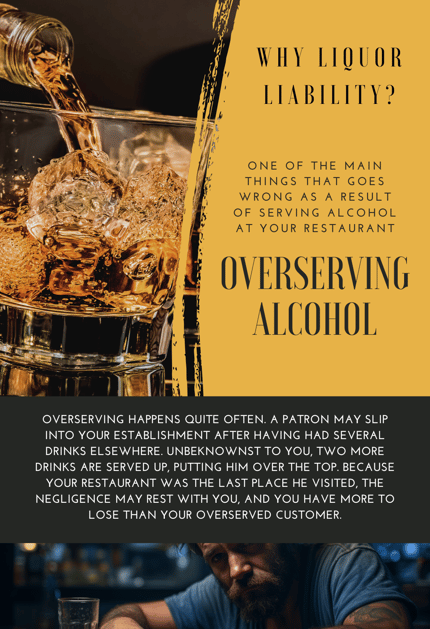 While liquor liability insurance can protect your business from many alcohol-related risks, it doesn’t cover everything. Some activities could make it challenging to get coverage, increase your premiums, or even prevent you from obtaining coverage. These activities include:
While liquor liability insurance can protect your business from many alcohol-related risks, it doesn’t cover everything. Some activities could make it challenging to get coverage, increase your premiums, or even prevent you from obtaining coverage. These activities include:
- Having pool tables, dart boards, arcade games, or other entertainment devices that could encourage drinking, competition, or aggression among customers
- Hosting ladies’ night, happy hour, trivia night, karaoke night, live bands, or other events that could attract large crowds, increase alcohol consumption, or create noise and disturbance
- Serving flaming drinks, shots, pitchers, bottomless drinks, free drinks, or other types of drinks that could increase intoxication levels or fire hazards
- Staying open past midnight, especially on weekends or holidays, when customers are more likely to drink excessively or encounter drunk drivers
- Having a history of prior liquor or assault and battery claims, violations, fines, suspensions, or revocations
These activities do not necessarily mean that you can’t get liquor liability insurance or that you’ll lose your coverage. However, they do increase your risk exposure and may affect your eligibility, rates, limits, deductibles, exclusions, or endorsements.
You should disclose any of these activities to your insurance agent or broker when applying for or renewing your policy. You should also follow the best practices and guidelines provided by your insurance company to minimize your risks and maintain your coverage.
Alcohol Sales Percentage and Coverage
One of the factors that can affect your eligibility and cost for liquor liability insurance is the percentage of alcohol sales in your total revenue. Generally, the higher the percentage, the higher the risk and the premium.
Some insurance companies may have a limit on how much alcohol sales you can have in order to add liquor liability coverage to your existing restaurant policy. And liquor liability can be obtained either as a separate policy or as an endorsement to your general liability policy, depending on the carrier.
For example, some insurers may only offer liquor liability as an endorsement if your alcohol sales are less than 35% or 50% of your total sales, depending on the type of restaurant you have. If your alcohol sales exceed that limit, you may need to buy a separate liquor liability policy or look for another insurer.
You should check with your insurance agent or broker to find out what the rules are for your business.
Liquor Liability Insurance Cost
The cost of liquor liability insurance depends on several factors, such as:
- Your type of business: Bars, nightclubs, and other establishments that primarily serve alcohol tend to pay more than restaurants, caterers, or grocery stores that serve or sell alcohol as a secondary service.
- Your location: The area of New York State where your business operates can affect your premium, as different areas may have different laws, regulations, risks, and competition.
- Your coverage limit: The higher the amount of coverage you choose, the more you’ll pay for your premium. However, choosing a lower limit may not provide enough protection in case of a large claim.
- Your deductible: The deductible is the amount you have to pay out of pocket before your insurer pays for a claim. Choosing a higher deductible can lower your premium, but it also means you will have to pay more in case of a claim.
- Your alcohol sales: The more alcohol sales you have, the higher the risk and the premium. Some insurers may also require you to report your alcohol sales periodically and adjust your premium accordingly.
- Your claims history: If you have had any prior liquor or assault and battery claims, violations, fines, suspensions, or revocations, you may have trouble finding coverage or pay a higher premium.
- Your risk management practices: If you implement measures to reduce your exposure to liquor-related claims, such as providing alcohol training for staff, checking IDs, refusing service to intoxicated customers, installing security cameras, or having bouncers, you may qualify for discounts or lower rates.
The best way to find out how much liquor liability insurance will cost for your business is to have your agent get quotes from multiple insurers and compare them.
This article is geared toward restaurants, but if you own a bar or tavern in CNY, liquor liability works a little differently, so read our liquor liability insurance article on that subject to learn more.
How to Find the Right Liquor Liability Insurance for Your Situation
Liquor liability insurance is an essential protection for any restaurant that sells or serves alcohol. It can help you cover the legal and medical costs that may arise from a lawsuit or claim involving bodily injury or property damage caused by an intoxicated customer who was served or sold alcohol by your business.
However, liquor liability insurance is not a one-size-fits-all solution. You need to find the right coverage and cost for your specific situation, depending on your type of business, location, alcohol sales, claims history, and risk management practices.
You also need to be aware of the activities that could affect your coverage, such as having entertainment devices, hosting events, serving flaming drinks, staying open late, or having prior claims.
That’s why you need a trusted and experienced partner to help you find the best liquor liability insurance for your restaurant. As a CNY-based insurance agency that specializes in policies like this, we have the expertise and experience to help you find the most affordable and comprehensive liquor liability insurance for your restaurant.
We understand the challenges and risks you face as a restaurant owner, especially in these uncertain times. We also know how important it is to have peace of mind and confidence when running your business. That’s why we are here to help you with all your insurance needs, from liquor liability to general liability, property, workers’ compensation, and more.
If you’re ready to secure the proper coverage for your business, click the Get a Quote button below for a free quote and consultation. We will work with you to find the best solution for your restaurant and budget.
Let us take care of your insurance needs, so you can focus on what you do best: serving delicious food and drinks to your customers.
If you’d rather brush up on the basics of restaurant insurance, read our overview.
Daniel is an accomplished content creator. He has been working in publishing for almost two decades. Horan Companies hired Daniel as its content manager in November 2022. The agency entrusted its messaging to him. Since then, Daniel has written insurance articles, service pages, PDF guides, and more. All in an effort to educate CNY readers. He's helping them understand the world of insurance so they can make informed decisions.
Topics:





